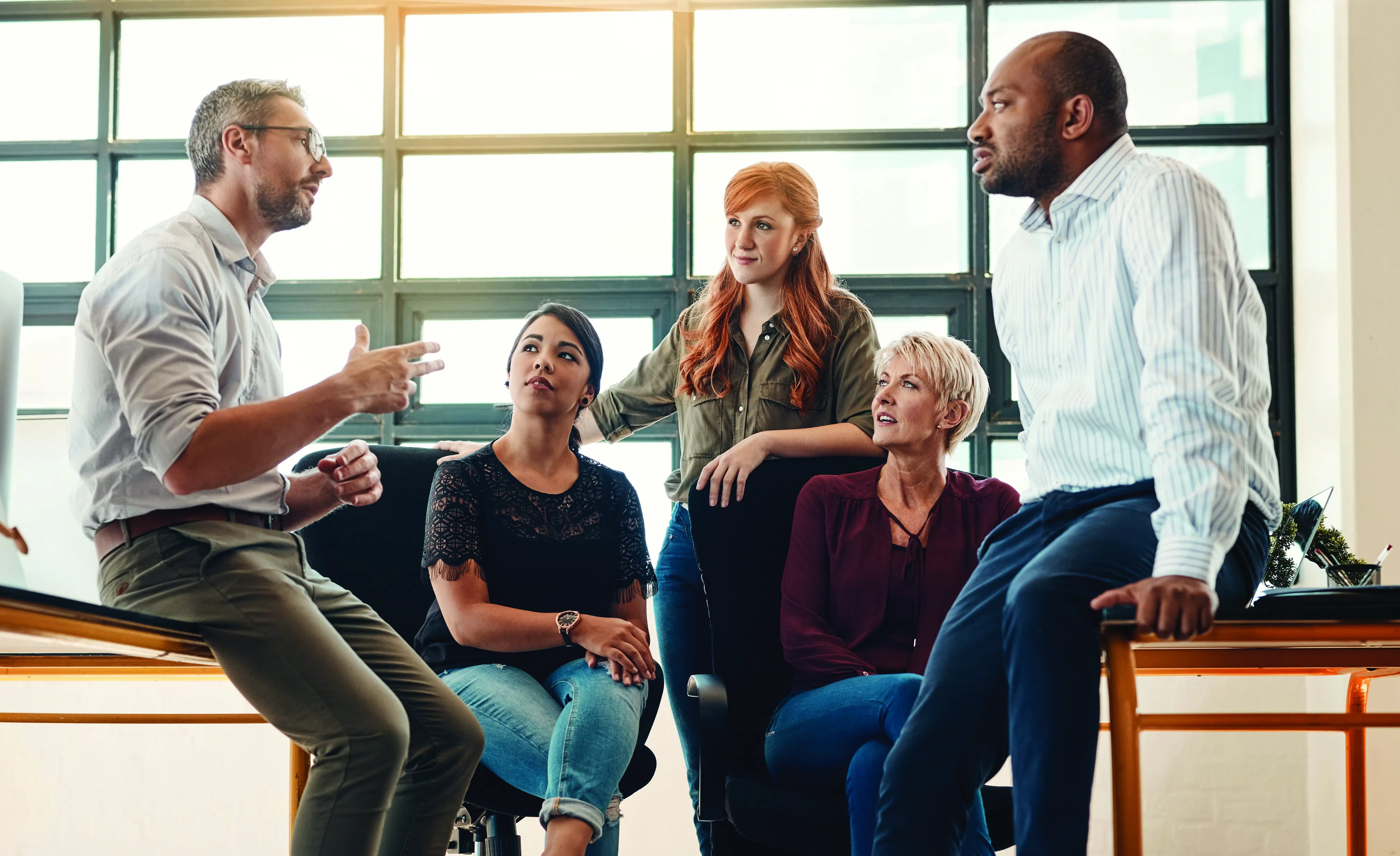Get past the fear of failure that may be holding you and your business back.
In life, the things people say about us, or the things we say about ourselves, can shape the way we see ourselves. Self-doubt can keep us from meaningful relationships and can keep our individual accomplishments from ever being realized. It’s easy for the criticisms people make of us to become part of who we are.
Take me, for instance. When I was young, my parents believed I was hyperactive. They were terrified I would hurt myself or someone else and always tried to keep me in line. This story shaped my entire childhood and stuck with me as an impediment throughout high school. My grades and poor self-esteem came as a result of self-misperception.
In my early 20s, I took an ADHD test, and miraculously, my hyperactivity had disappeared, almost like it was never there to begin with. As I look back now, I am not sure I ever had ADHD.
My parents were not at fault. They were doing the best they could with a crazy, energetic kid. I am one of six kids, and my mother always told me that if I was the first born, I would have also been the last born. She’s not being mean, just sincere.
ADHD, whether I have it or not, does not make me who I am. The stories we tell ourselves or let other people tell us about us can become part of who we are and damage our ability to act the way we want to act. Impediments, real or imagined, are only impeding if we let them.
When I lost my first business, I was so tempted to give up and say, “I can’t do this anymore.” But I fought back. I overcame self-doubt and built a better, stronger company by becoming a better leader.
We all face challenges every day, and some of them seem too difficult to overcome. Our failure in the face of these tasks can build a creeping sense of self-doubt within us: a wall of our own construction that prevents us from moving forward. But if we’re the one building the wall, it’s up to us to tear it down.
We’re the authors of our own lives. The stories we choose to believe are the ones that will shape us in ways we can’t imagine, both in life and business. The hardest part of understanding that and using it to better yourself is that we want to believe other people are right and know us better than we know ourselves.
The truth is, when you or others say, “I can’t,” this is a lie. You can. That thing that you want to accomplish may not come as easy to you as it does for others, but you can still do it as long as you’re willing to pay the price.
The phrase, “I can’t,” does not exist. It’s not real. The truth is right now, “I won’t.” The thing that holds us back from being physically fit happens to be the same thing that keep us from being great leaders. It is the same thing that keeps us from being the best parent, a wonderful spouse, an incredible business success or even a kind neighbor. It is all for the same reason. Right now, “I won’t.”
This means that the self or social doubt, we choose to internalize, builds an imagined wall that keep us from doing the hard work necessary to move forward.
Failure from time to time is part of the program. If we get negative feedback from our customers or clients, or we lose business deals because we make a mistake, there will be a moment when the people we do business with will try to break us down.
They’ll tell us we aren’t fit to run a business; they’ll question why we worked with them in the first place. When that moment comes, we need to be prepared not to incorporate this criticism into ourselves, creating self-doubt, but use it to move forward and build a stronger business and a stronger story.
Exercise Optimism
Say we’re committed to working out, building ourselves up physically so we can be healthier and more productive. Every day, we go to the gym, run through some exercises, and get a little stronger. This goes on for months, until one day we injure ourselves, and can’t go back to the gym for a month.
We have a tendency to believe all that progress we worked so hard to make will vanish, and we can be tempted to drop our training regimen and give up on fitness completely. We have proximity 206 bones surrounded by 650 muscles in our bodies. You can exercise through injury. That is, if you are willing to change your attitude and routine.
Optimism is a lot like a muscle. Every time we interact with someone or deal with a challenging situation, we can choose to exercise that muscle. But then something really bad happens, and our negative human tendencies take over. We become consumed by what we think is our failure, and it shapes our future thinking. We don’t go back to the gym and sink into our own self-doubt.
An injury can beat you once because you have to change your routine for a while. You decide whether it beats you twice if you quit or have a poor attitude because of it.
But when we whine, we feel worse. We’re less productive. We’re more likely to let opportunities and moments pass us by, because we just can’t see them. And while we’re sitting on the couch and giving up, we’re doing more damage to ourselves than the initial injury ever could. A month of recovery becomes a lifetime of complacency and fear. And it wasn’t because we could not. It is because we would not.
A decade ago, I found myself facing bankruptcy. A merger I had planned with a software company didn’t work out, and the business fell apart. I was terrified, because I had to provide for my family and I had nothing left. It would have been so easy to give up, but what would happen to my wife and kids?
Instead of letting this temporary defeat crush me and lead me into a lifetime of negativity and failure, I drove from Florida to Utah, moved into my brother-in-law’s basement and started working to rebuild my business. I tried to be as optimistic as I could, found a way to pivot into an industry that fit my talents better, and started training call center operators to make real connections with their customers. It was a success for both me and my client, and it’s the fuel that’s kept me going through today.
People Can Learn and Grow
Events and other people in our lives will try to tear us down, to bring us to their level, to make us say, “I can’t,” and stop pursuing our dreams. We’ll get
kicked around but getting back up is always up to us.
An example: toasters are great. They’re the best way to make toast or reheat a frozen waffle or crisp a bagel. They’re very good at the one thing they do. But if you take it outside and drop-kick it down the street, it’ll be less effective. If you do that enough, it’ll break.
People aren’t like that. For us, adversity is a chance to learn and grow and find better ways to approach problems in the future. Unlike the toaster, we can come back from our failures even stronger.
Adopting a toaster mentality — that you’re only as good as the thing you do — can hold you back. It can prevent your business from growing and keep you from converting leads into revenue. If you choose to be a toaster, eventually you will break.
Instead of giving up, find time to exercise those muscles of optimism, and become more resilient in the face of those stories people tell you about yourself. By not giving up when things get tough, you’ll become stronger, and so will your business.




